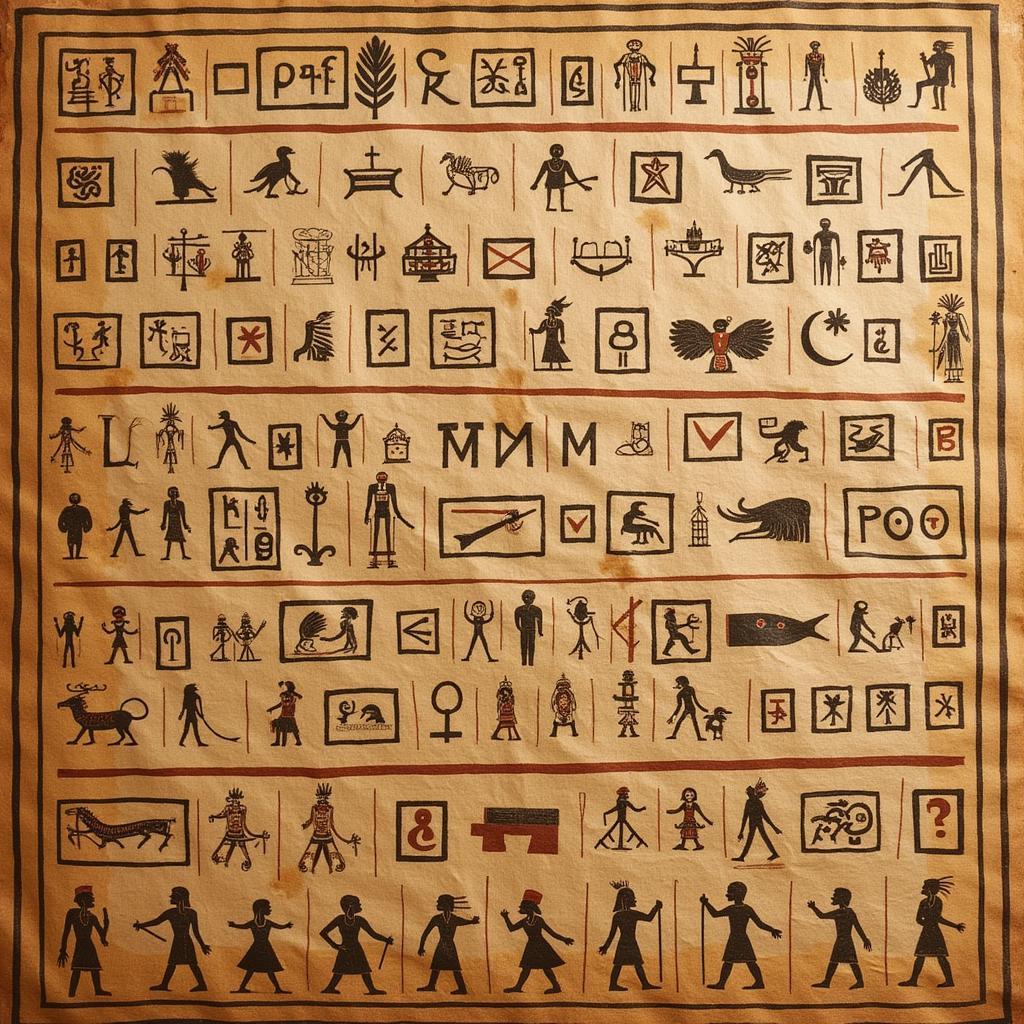African History Timeline: A Journey Through Time
The African History Timeline stretches back millennia, encompassing a rich tapestry of civilizations, empires, innovations, and cultural movements. Far from a static continent, Africa’s past reveals a dynamic and interconnected world that has deeply influenced the course of human history. This exploration delves into key periods and events, offering a glimpse into the vastness of African history.
From Ancient Origins to Powerful Empires
Our journey begins with the dawn of humanity in Africa. Archaeological evidence confirms the continent as the cradle of humankind, with Homo sapiens emerging around 300,000 years ago in present-day East Africa.
Ancient Egypt: A Beacon of Knowledge and Power
Fast forward to 3100 BCE, and we encounter the rise of Ancient Egypt, one of the world’s earliest and most influential civilizations. Known for its magnificent pyramids, hieroglyphic writing system, and advancements in mathematics, astronomy, and medicine, Ancient Egypt flourished for over three millennia.
“The legacy of Ancient Egypt extends far beyond its monumental architecture,” notes Dr. Anika Kwame, Professor of African Studies at the University of Nairobi. “Their contributions to science, art, and governance continue to resonate today.”
 Ancient Egyptian Hieroglyphs on Papyrus
Ancient Egyptian Hieroglyphs on Papyrus
The Rise and Reign of Powerful Kingdoms
While Ancient Egypt often takes center stage, numerous other kingdoms and empires rose to prominence across the continent. The Kingdom of Kush, located in present-day Sudan, rivaled Egypt in power and influence, eventually conquering its northern neighbor in the 8th century BCE. Further south, the Great Zimbabwe civilization left behind impressive stone structures, testament to their architectural prowess and sophisticated social organization.
Trans-Saharan Trade: Connecting Empires and Cultures
The expansive Sahara Desert, often perceived as a barrier, served as a vital trade route connecting North Africa to sub-Saharan Africa. From the 8th century CE onward, the trans-Saharan trade flourished, with empires like Ghana, Mali, and Songhai controlling the flow of gold, salt, ivory, and enslaved people. This exchange fostered cultural exchange, the spread of Islam, and the growth of vibrant urban centers like Timbuktu, renowned for its scholarship and libraries.
A Continent Transformed: Colonialism and Resistance
The 15th century marked a turning point with the arrival of European powers. Initially drawn by trade, Europeans gradually established colonial control over most of Africa, culminating in the Berlin Conference of 1884-1885, which formalized the partition of the continent among European powers.
The Legacy of Colonialism and the Fight for Independence
Colonialism had a devastating impact on Africa, leading to the exploitation of resources, the dismantling of traditional systems of governance, and the imposition of foreign cultures and ideologies. However, resistance to colonial rule was a constant, taking various forms from armed uprisings to intellectual movements advocating for self-determination.
The mid-20th century witnessed a wave of independence movements across Africa, starting with Ghana’s independence in 1957. By the late 1970s, most African nations had achieved political independence.
Contemporary Africa: Challenges and Opportunities
Post-independence Africa has grappled with challenges of nation-building, economic development, and social inequality. Conflicts, poverty, and disease continue to plague many parts of the continent.
However, Africa is also a continent of immense resilience, creativity, and potential. Rapid urbanization, a burgeoning middle class, and technological advancements are driving economic growth and social change.
“The narrative of Africa is not solely defined by its past,” asserts Dr. Kwame. “The continent stands at a pivotal juncture, poised to leverage its rich heritage and youthful population to shape its own future.”
Conclusion
From the dawn of humanity to the present day, the African history timeline is vast and multifaceted. Understanding this history is crucial for appreciating the continent’s diverse cultures, its contributions to the world, and its ongoing journey of transformation.
If you found this journey through the African history timeline informative, be sure to explore our other resources on African American History Timeline Powerpoint, African American History Timeline, A Person of South African Dutch Descent, African Chants Lyrics, and South African Parliament Name to deepen your understanding of this captivating continent.

